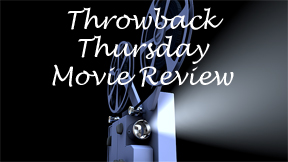“Hackers” (1995) is perhaps a movie you had to grow up with in order to enjoy. I have a friend who has seen it 20 times and loves it for the nostalgia. For some reason, this landmark film in portraying hacker culture – or one group of filmmakers’ idea of hacker culture – slipped through the cracks of my movie knowledge.
I had hoped for a peek into the internet, computers and hacking as they existed in 1995, but instead it’s a stylized look at those issues. In my post-viewing research, I’m surprised to find “Hackers” isn’t as far off as I’d assumed in portraying the reality of the era – although even its defenders admit to the cheese.
Hacker culture … or at least ‘Hackers’ culture
It’s a schizophrenic, mostly unenjoyable viewing experience. Writer Rafael Moreu and director Iain Softley are clearly early in their careers, but they aren’t interested in learning paint-by-numbers technique; they instead throw things at the wall. Admirable in a way, but I can’t say much of it sticks.

“Hackers” (1995)
Director: Iain Softley
Writer: Rafael Moreu
Stars: Jonny Lee Miller, Angelina Jolie, Jesse Bradford
For one, the acting is bad. Our hacker hero is Dade, played by Jonny Lee Miller, who looks like James Van Der Beek – and makes the Beek look like Laurence Olivier. Angelina Jolie, as token girl hacker Kate, shows no signs of winning an Oscar four years later. As Cereal Killer, Matthew Lillard is the ’90s Matthew Lillard we know and tolerate.
“Hackers” doesn’t aim to portray hacker culture so much as extrapolate it to the wildest excesses. Although the film is set in 1995, it imagines a near-tomorrow where hackers make fashion statements with leather, shoulder pads, ratty T-shirts, incongruous hairstyles and purposeful overuse of makeup, zippers and chains. This isn’t so much a time capsule of the true ’90s as it is a fictional extension of the ’80s. (But culture had moved on and was even thinking ahead to Y2K. “Strange Days” also came out in ’95.)
Gender roles are thrown out the window – Jolie has short hair – except for the fact that Dade pines for Kate. And perhaps vice-versa, although you wouldn’t know from Jolie’s performance. I wouldn’t be surprised if the film is today a LGBTQ touchstone, but by the same token I doubt Softley and his team were thinking about that.
Actual ’90s elements come through via the characters’ uncommented-upon use of rollerblades to get around, plus the music – notably a nearly complete club song by Urban Dance Squad, a bargain-bin Rage Against the Machine.
Clunky conflict
“Hackers’ ” portrayal of the hacking is a subject of debate. I found it starts off plausible, as Dade tricks a TV station employee into giving him his modem number, then gets into the internal system, then we see the robotic tape-changer switch the programming.

But as “Hackers” goes forward, we get less of a sense of the how, what and why. The film is caught between a realistic portrayal – it employed two hacking consultants – and stylization that took me out of the movie. It almost entirely uses graphical user interfaces, rather than lines of code, to portray the hacks.
My initial feeling is that the hackers would be seeing lines of code, but there’s an interesting counterargument to be made that both the heroes and the villains might indeed create GUIs to make the “game” more fun. (In the convoluted plot, the bad guy – Fisher Stevens’ The Plague – aims to frame the good guys for a hack on an oil tanker to order to distract the feds from the fact that he himself is using the “Superman III” scheme of stealing fractions of pennies from banks.)
The FBI is led by Wendell Pierce’s Agent Gill, who at one point asks for an English translation of “uncorrupted hard drive.” To say Moreu is satirizing feds’ ignorance of tech would be too generous, but it is a funny line on multiple levels.
Ideas lost to history
“Hackers’ ” core tagline – chanted by Lillard’s Cereal – is “Hack the planet!” This is the film’s most fascinating time capsule. In 1995, there was open discussion about ownership of code and data, and privacy within your computer and what you do on it. Spinning off of this were questions about regulation of the internet and justice-system oversight of what can and can’t be created on the web.
The results turned out to be a mixed bag. The internet is less regulated than some other media. For instance, you can create your own website right now if you feel like it, whereas you can’t start your own TV or radio station. On the other hand, Ross Ulbricht is in prison for life for creating a website (Update: He was freed on Tuesday by an executive order from President Trump), and governments effectively flipped the script: If a citizen grabs data, it’s possibly theft; if the government does it, it’s probably legal.
Dade, Kate and Cereal stand for a principle that most modern viewers would be uncomfortable with: that the internet should be free and anarchic. Vaguely, the film’s reasons are basic liberty and a sense that a wild-west digital space could be a bulwark against corporations’ and governments’ power-gathering. But to say “Hackers” is a rich thematic statement on anything is generous.
Softley, Moreu and their actors run around in this world created by costume and set designers, but I don’t think they totally understand it. I can imagine those two hacker consultants being like “Haha, OK, close enough.” The problem is that if the principle filmmakers don’t fully understand their world, the viewer won’t get it either.

